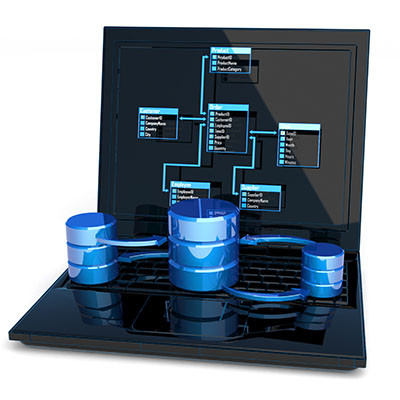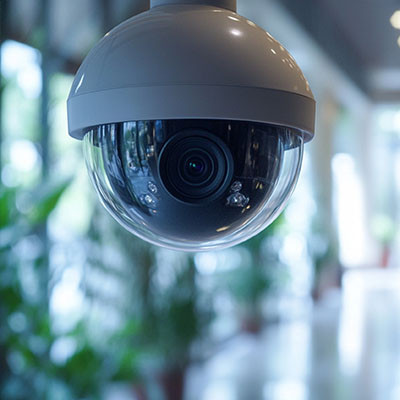Washington Works Blog
Have you ever used Google to look up something, played a game that remembers your high scores, or checked your messages on Instagram? All these apps work smoothly because they have something called a Database Management System, or DBMS, working behind the scenes. In this month’s newsletter, we take a look at the DBMS and how it works to improve user experiences.
Want to be a business without hearing how artificial intelligence is changing the industry? Good luck; it’s a big deal that this technology has flourished in recent years, and businesses have found all kinds of ways to implement it. While AI has significant capacity for growth and to be an excellent tool to help human society, a lack of AI regulation has led some to believe that it’s only a matter of time before something bad happens that ruins a good thing for everyone.
Digital security cameras have changed the game when it comes to keeping places safe. They can be beneficial in all types of situations. Offices, retail spaces, warehouses, and other properties should be covered by some type of surveillance. This not only allows for real-time security, it can reduce liability and have a positive effect on an organization’s bottom line. Here's a breakdown of three big reasons why they’re better than old-school analog cameras.
If you’re a regular reader of this blog, you’ve probably come across articles on blockchain before. This week, we're shifting gears to explore a new topic: should cryptocurrency, which is enabled by blockchain technology, be subject to taxation by state, federal, and international authorities? Let’s dive into what blockchain is, how it supports cryptocurrency, and the ongoing debate about potential taxation.
Nowadays, we use technology for almost everything. Whether we're talking to friends, watching videos, or shopping, technology makes it easier and faster. With phones, computers, and other devices, we can do so much more than ever before. This has made people expect things to be quick and simple. Let’s see how tech has changed the way we shop!
The smartphone market used to be a hallmark of innovation, but nowadays, aside from the folding form factor, smartphone manufacturers have decided that the technology works, more or less, the same. What does this decline in innovation mean for you and your business? It might actually not be all that bad.
Chances are that your business’ technology has gotten more complex in the past few years. This complexity has likely created some confusion on how best to manage your technology. Couple this with the more sophisticated threats that have been developed over that time, and there is a real risk to the welfare of your business coming from the technology you depend on daily. Today’s blog will discuss how increased complexity can be managed competently.
Have you ever had things not go according to plan? It can be an incredibly frustrating experience, especially when assets and business resources are involved. This is also true in the realm of business technology, so today, we want to cover how you can invest in the future of your business without getting too far ahead—including with your IT resources.
Keeping track of your business’ technology is very important for smooth operations and long-term success. You need to monitor every piece of your technology to avoid wasting money and facing security issues. A good inventory system helps you know what technology you have, where it's being used, and when it needs maintenance or replacement. This ensures your team has the right tools when they need them, which helps boost productivity and growth.
If you’ve spent any time online, you’ve likely encountered ads popping up while you’re trying to read articles, watch videos, or scroll through social media. While some ads can be helpful, many people find them disruptive or invasive, which is why ad blockers have become popular. Have you ever wondered how exactly ad blockers work? Let’s break it down.
Professional services include a lot of the “experts” people depend on. Today’s professional services firms rely heavily on technology to enhance efficiency, client service, and overall operations. This month, we thought we’d go through four technologies professional services firms depend on. Let’s get into it.
Cutting costs on IT while maintaining the security you depend on requires a fair amount of consideration. One of the most effective ways to maintain security and manage IT costs is through the use of cloud services. The problem is that there are horror stories surrounding data security in the cloud that persist even as a larger and larger percentage of people and businesses use the cloud for their computing needs. This month, we take a brief look at how the cloud serves to cut down their computing costs.
Artificial intelligence (AI) is rapidly transforming the technology landscape, and mobile devices are at the forefront of this revolution. As smartphones and tablets become increasingly powerful and sophisticated, they are becoming ideal platforms for running AI applications. This trend is driven by several factors, including:
When you think about it, the technology we have today is truly awe-inspiring, simply because it enables us to be so much more productive as we exercise our creativity. All one really has to do to prove its value is to compare the quality of life we enjoy now as compared to almost any time in the past.
However, this does not mean that everyone is using technology to its full capacity and, as a result, suffering some consequential effects. Let’s consider some of these effects to reinforce why it pays to embrace the potential uses of technology fully.
Data fuels business, but we also share a large amount of data even in our personal lives. Even the most benign communications, like chats, requests to stop by the store on your way home, and even memes or pet pictures, are considered data—and where there’s data, there’s a place where it’s stored.
Today’s question: do you know where your data is being stored? And do you know the impact of that storage?
Human resources is not an easy game, as I’m sure your HR representatives would be happy to tell you if asked. Therefore, it is important that they have the tools needed for success today.
By this, we mean information technology that supports the everyday responsibilities and processes that an HR department is charged with completing. Let’s discuss some tools that you should incorporate into your processes.
Managing a budget is difficult, let alone budgeting for something as complicated as your IT infrastructure. Even though IT is notoriously difficult to budget for, it still continues to grow as a priority for organizations. How can you ensure that your budget can keep up with the projected expenses of your IT in the next several years?



















